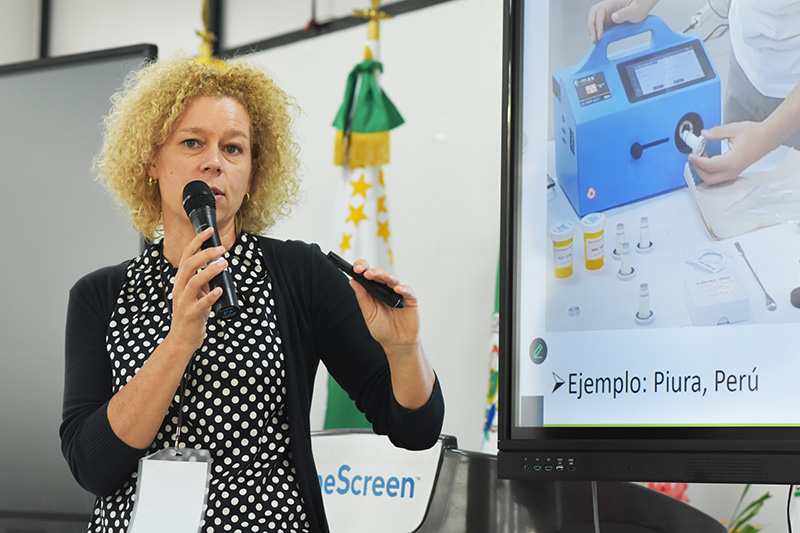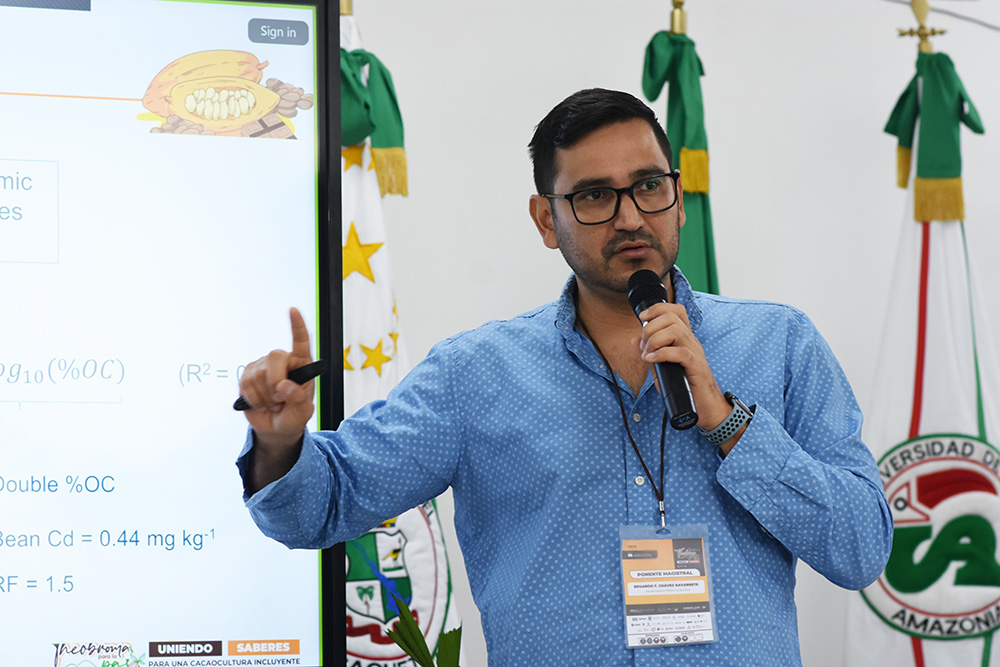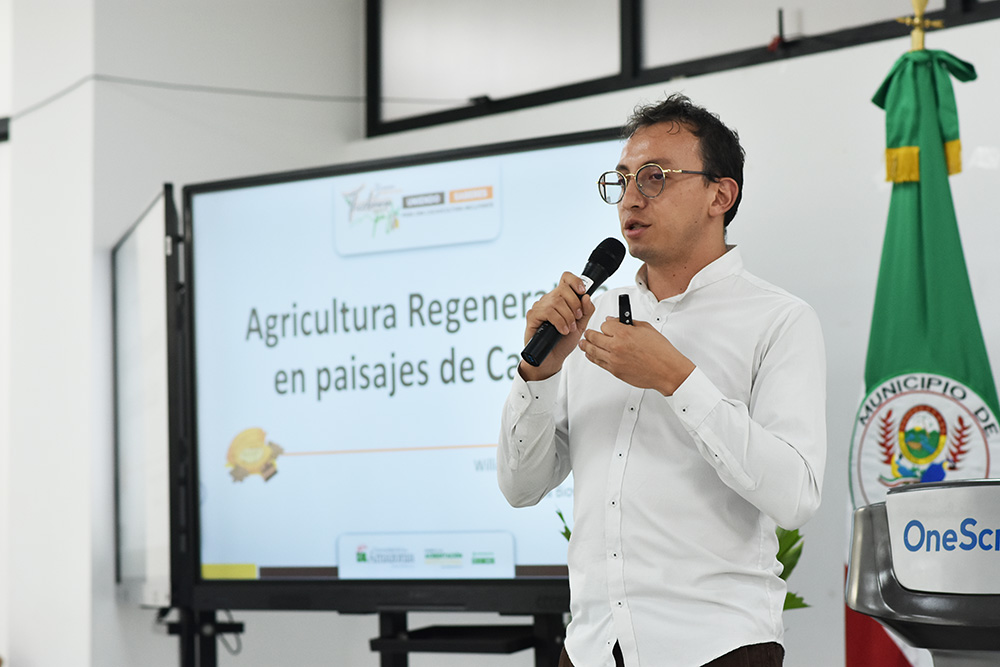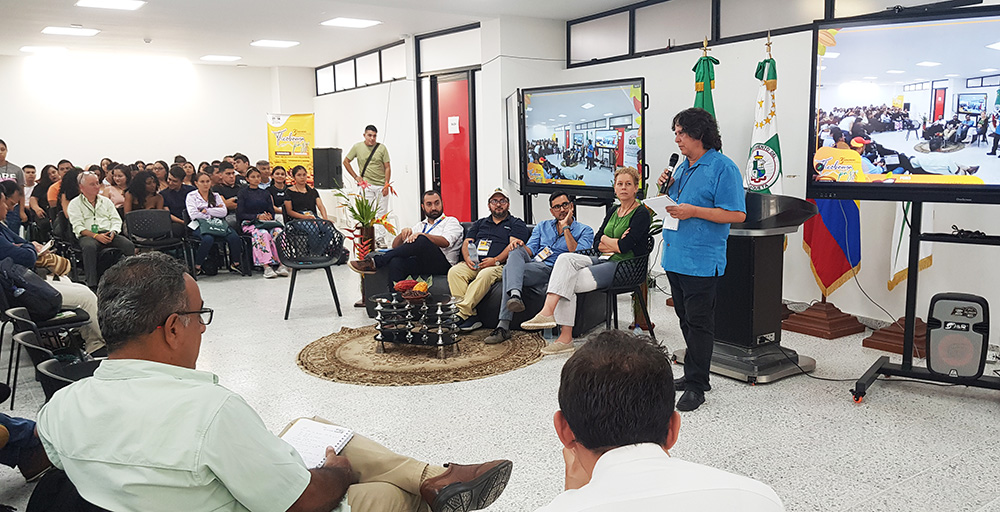The third edition of the Theobroma International Congress for Peace was held in Florencia (Caquetá), Colombia, from September 17 to 18. The University of the Amazon hosted this meeting, which brought together university students, businesspeople, academics, researchers, and cocoa farmers to share their experiences on the path to inclusive and sustainable cocoa farming.
The important topics discussed regarding sustainable cocoa production were presented in a setting where producers were able to learn firsthand about research on agroforestry systems, mitigation strategies to reduce cadmium absorption, climate change, sensory quality, marketing, gender, and social inclusion in cocoa farming.

The Clima-LoCa project was represented by two presentations. Mirjam Pulleman, leader of the initiative, gave a keynote speech on Research Strategies for Mitigating Cadmium Absorption in Cocoa Beans. She also participated in the forum What Can Be Done to Mitigate Cadmium Content in Cocoa Beans in Latin America?, together with researchers from AGROSAVIA, CATIE, and Eduardo Chavez from the Escuela Superior Técnica del Litoral (ESPOL), who is also a researcher for the Clima-LoCa project.

Eduardo, Ecuadorian partner of Clima-LoCa, gave a presentation entitled Cadmium Mitigation in Affected Areas of Ecuador – Expectations vs. Reality. This presentation highlighted some key findings from more than five years of research on the use of soil amendments and management practices. However, it also raised new questions about the mechanisms involved in cadmium absorption by cacao plants, the role of fertilizers, and some general recommendations. These should always be analyzed in context.

William Melo, senior research associate at the Bioversity International and CIAT Alliance, who is also part of the Clima-LoCa working group, presented the paper Regenerative Agriculture in Cacao Agroforestry Systems, in which he outlined the project’s contributions to this new emerging field of agriculture. The event was used as an opportunity to integrate and share the results of complementary projects, such as Rutas PDET, which is funded by the European Trust Fund for Peace.
For Clima-LoCa, these spaces represent an important opportunity to publicize the preliminary research being carried out within the framework of the project and to make the findings available to the entire value chain. These results can help mitigate the effects of climate change and regulations on cocoa exports related to cadmium.

